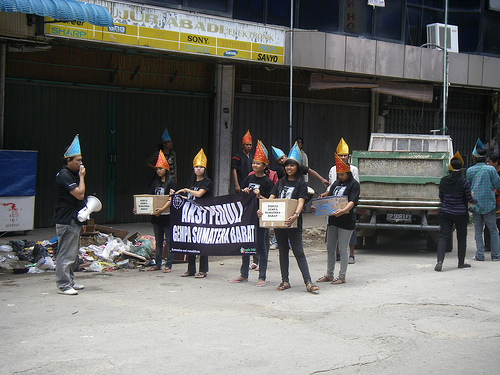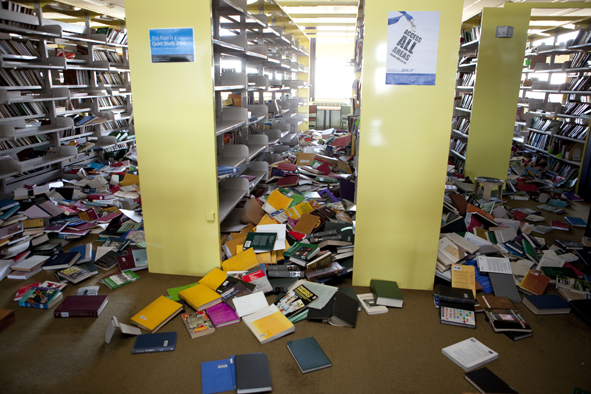I was enjoying myself at a music festival when the news of the tsunami broke (2004). It changed everything. The whole site became dedicated for the next few days to raising money for the victims.
I was planning on visiting Padang in southern Sumatra, Indonesia, when the earthquake hit them. I knew that again western countries would be being deluged with efforts to raise money and many would give generously.
Inevitably there are concerns expressed, too. Where does the money actually end up? But that doesn’t seem to really matter tooo much in most cases. Even if only 20% of what we give “gets through” — that yields a better result than having given zero.
I had not realized how western-centric I had become, thinking it was all a matter of “us westerners” giving to the poor. Stories circulated about corruption at the other end.
So I was moved to see when I did visit other outlying islands of Indonesia to find that the locals seemed not to have heard of western aid. They acted as if it was all up to them. I confess I was a little moved to see such poor people acting in solidarity with their own and giving what they could. I didn’t want them to give anything — how could they afford it? Where you can get “a meal” for a little as a few cents from a street hawker, the poorest were giving the equivalents of a few cents, a few even of a dollar or two. They were the equivalents of a westerner giving tens and twenties of dollars.
And it is all in open boxes. No receipts. No tax breaks. No accounting. Just trust. People acting together to care for their own.
When approached by those raising money I felt all eyes on this western visitor to their country to see what he would do. I put in a blue looking note with a few zeroes on it, not much at all in my currency but far more than any other single donation in the box. I knew I had done the right thing when a man from across the street yelled in gratitude and gave me a thumbs up and big smile. The word got around ab0ut how this privileged westerner conducted himself among at such a time.
It was unforgettable — to think how easy it is for westerners to forget that we are only helping from the sidelines. Those people themselves are the ones with the heartaches, and they think only of seeing what they themselves can do. Western aid is an extra. (It is mostly money in the pockets of the western contractors, too, but that’s another topic for another time.) It was a sobering experience that helped put me back in my place. It is the local inhabitants who are bearing the burden, of both suffering and relief efforts.
 Indonesian youth preparing to walk through the market to collect money for their earthquake victims in Padang, 2009.
Indonesian youth preparing to walk through the market to collect money for their earthquake victims in Padang, 2009.
Like this:
Like Loading...



